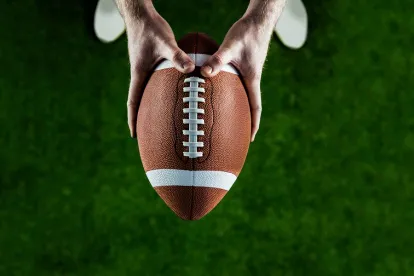Recently, the Third Circuit U.S. Court of Appeals turned the switch on a fan’s seemingly dormant class action suit against the National Football League concerning its 2014 Super Bowl Ticket Distribution Policy, which limited tickets available to the general public. In Finkelman v. NFL, the plaintiff-fan accuses the NFL and its related entities of violating the New Jersey Ticket Law(“NJTL”) that bars individuals with access to tickets from withholding more than five percent of all available tickets.
The putative class representative, Josh Finkelman, bought tickets to the 2014 Super Bowl at MetLife Stadium through the secondary market, purchasing two tickets with an $800 face value for $2,000 apiece. In his complaint, Finkelman alleged (and the NFL and its entities did not dispute) that the NFL withholds almost 99 percent of Super Bowl tickets from the general public and allocates those tickets as follows:
-
About 75 percent to NFL Teams (5% to the hosting team(s), 17.5% to each Super Bowl participant, and 35 percent to the remaining NFL teams)
-
About 25 percent to NFL stakeholders (e.g., broadcast networks, media sponsors, host committee, etc.)
-
Roughly 1 percent to the general public through a lottery (an estimated 825 tickets for the 2014 Super Bowl)
To this point, the dispute has largely concerned Finkelman’s ability to demonstrate sufficient constitutional (Article III) standing to bring his claim. Initially, Finkelman advanced the theory that the NFL’s policy prevented him from buying a ticket at face value. He was bounced on standing grounds by the district court and then by the Third Circuit because Finkelman never entered the lottery for the general public, and thus, he was never denied the ability to buy tickets at face value (i.e., he lacked the requisite injury for standing).
Not to be discouraged, Finkelman amended his complaint to include a new standing theory alleging that the NFL’s policy increased the price of the tickets he purchased in the secondary market. An expert economist with significant experience in the sports industry augmented this theory by offering that the NFL’s policy elicited a layer of ticket brokers making fewer tickets available on the secondary market, resulting in higher prices (and thus harming Finkelman). Significantly, the Third Circuit accepted this second theory of standing.
So, after nearly four years of litigation, Finkelman can sue, but does he have a case on the merits? More delay ensues as the Third Circuit certified to the New Jersey Supreme Court two specific questions on the NJTL to determine whether Finkelman has alleged a viable claim under the statute, (i) with respect to the scope of the NJTL, and (ii) with respect to other required elements of Finkelman’s claim, including the plaintiff’s loss and the required causal connection to the defendant’s conduct.
On the latter question, Finkelman claims that the NFL’s ticket distribution or withholding caused him to pay an increased price for the tickets on the secondary market. What remains unclear, in the Third Circuit’s view, is whether this allegation alone is enough to state the requisite causation under the NJTL or if it merely represents a fraud-on-the-market theory of causation, which is an actionable basis under the statute only for the New Jersey attorney general and not a private plaintiff like Finkelman.
On the scope question, the Third Circuit seeks clarity on whether the statute means that 95 percent of the tickets to all events in New Jersey must be made available for sale to the general public, as Finkelman asserts, or whether under the NFL’s proposed narrower interpretations of the statute, (i) it did not withhold (i.e., retain custody of) any tickets, given that it allocated 100 percent of the tickets to others, and (ii) there was no sale of tickets to the general public because even the 1 percent sold through the lottery came with various pre-conditions for entry and opportunity to purchase, which would not qualify as a sale to the public.
And so the parties (and interested court watchers) wait for the New Jersey Supreme Court to rule on these dispositive questions. As a practical matter, regulating the amount of tickets owners can withhold from the general public appears unique to New Jersey, which suggests that, whatever the outcome, this case is not likely to have an impact on events held in other states. Additionally, it seems that the statute lends itself to “marquee” events with a limited engagement in New Jersey, where reserving tickets for event stakeholders is more likely to occur. Nevertheless, as the New Jersey Supreme Court considers whether a private plaintiff can ever make a claim under the NJTL, Finkelman’s survival skills may still hold some importance to Garden Staters looking to attend local events for a reasonable price.




 />i
/>i
